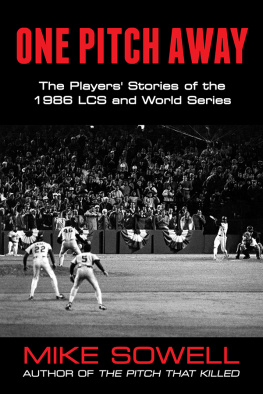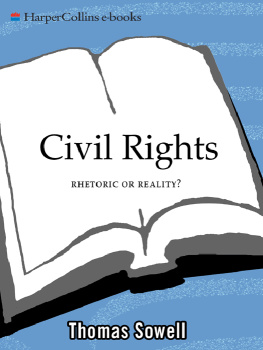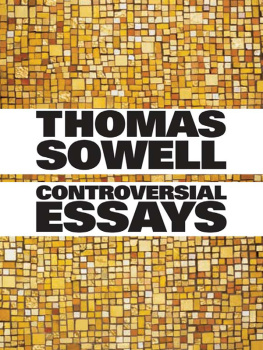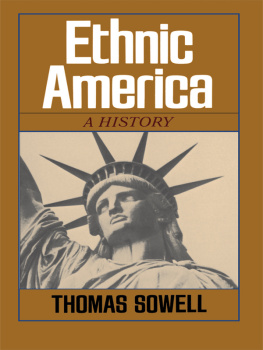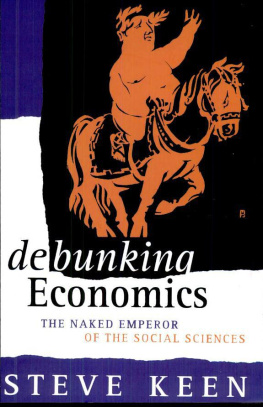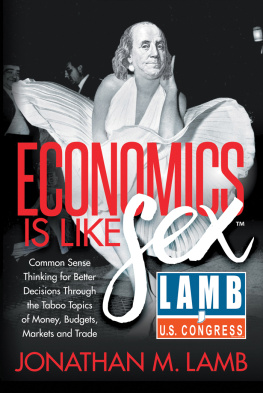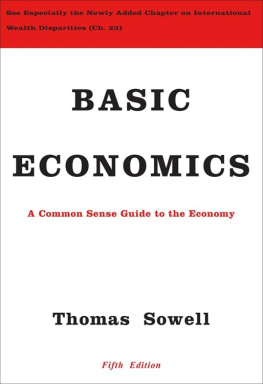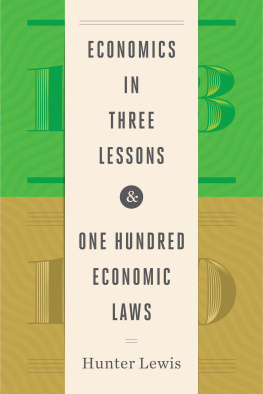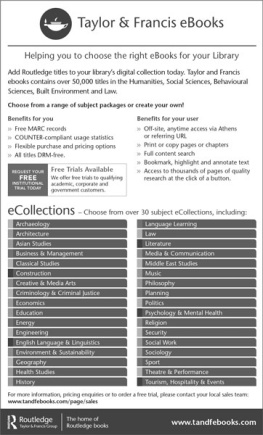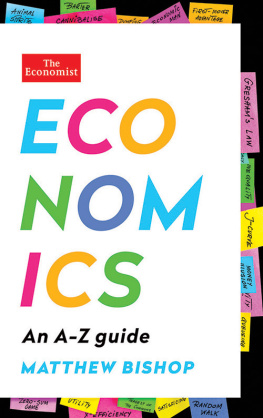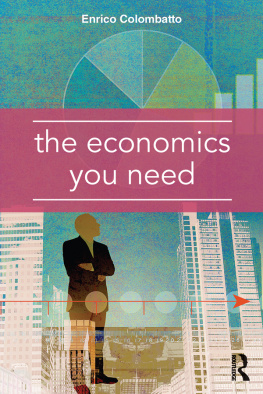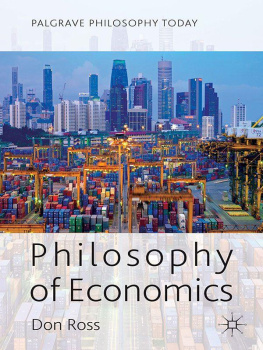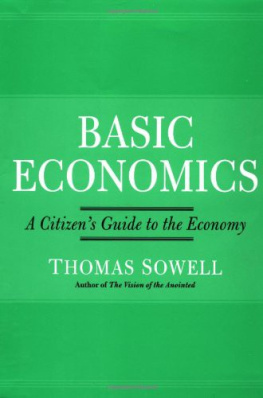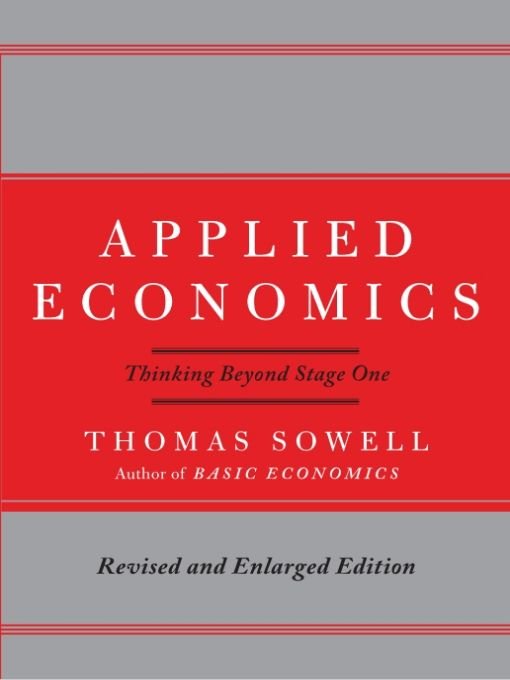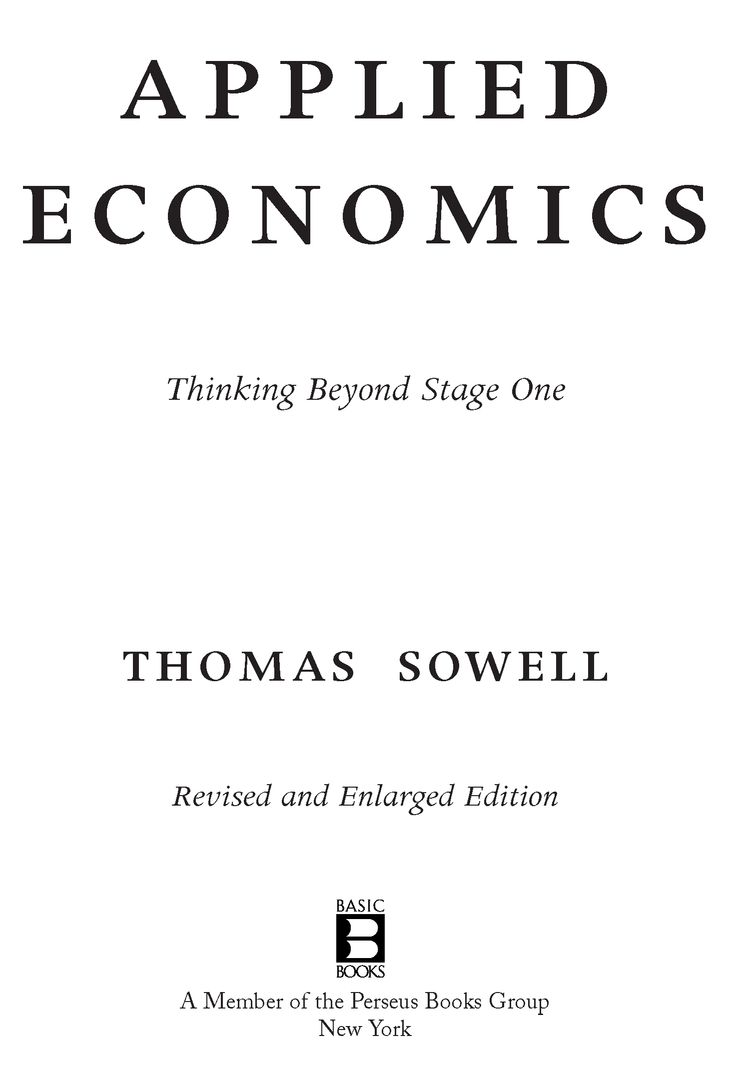Table of Contents
To Professor Arthur Smithies, who taught
me to think beyond stage one
PREFACE
This is the revised and expanded edition of Applied Economics. There is a new chapter on the economics of immigration, and existing chapters have much new material, such as an analysis of the economics of organ transplants in the chapter on the economics of medical care and an explanation of some of the creative financing behind the subprime mortgage crisis in the chapter on the economics of housing.
Despite its title, this is not a book designed for economists to use in applying their expertise. It is a book to enable anyone, with no prior knowledge of economics, to understand some of the key economic issues of our time medical care, housing, discrimination, and immigration, for example. Because these are political, as well as economic issues, we will need to consider what incentives and constraints apply to political decision-making, as well as those which apply to economic decision-making.
Economics requires thinking beyond the immediate consequences of decisions to their long-term effects. Because politicians seldom look beyond the next election, it is all the more important that voters look ahead beyond stage one rather than voting for a candidate or a policy that they will end up regretting later. This book stresses long-run repercussions to decisions and policies.
It is helpful to have something of a sense of humor when considering economic policies. Otherwise, the study of these policies and their often painful, and sometimes disastrous, unintended consequences can get to be too depressing or you can get too angry. Save your anger until you are inside the voting booth on election day. In the meantime, enjoy the process of getting more understanding of issues and institutions that affect your life and the future of the country.
Because this is a book for the general public, the usual footnotes or endnotes are omitted. However, for those readers who want to verify what is said here, or to read further on some of the subjects covered, the sources of the many facts discussed here are listed in the back of the book. Many, if not most, of those facts were gathered for me by my extraordinary research assistants, Na Liu and Elizabeth Costa. The former also created the computer files from which this book was directly printed and the latter did the copy-editing.
THOMAS SOWELL
The Hoover Institution
Stanford University
Chapter 1
Politics versus Economics
I dont give a good goddamn what Milton Friedman says. Hes not running for re-election.
President Richard Nixon to a White House aide
While economic principles are important, economic actions take place within a framework of laws and government policies that are shaped by political principles, which may or may not be consistent with economic principles. The interaction of political and economic incentives makes the study of economic policy issues more challenging and more revealing than a study of either economic or political principles in isolation.
POLITICAL VERSUS ECONOMIC DECISIONS
People tend to respond to the incentives and constraints confronting them, whether they are in the marketplace or in politics. However, those incentives and constraints are very different in these different situations, so it can hardly be surprising that voters tend to behave differently than consumers, and politicians tend to behave differently than sellers of goods and services.
Voters
Economic decisions and political decisions are made in different ways, even when the same person makes both kinds of decisions, for example as a consumer and as a voter. Virtually no one puts as much time and close attention into deciding whether to vote for one candidate rather than another as is usually put into deciding whether to buy one house rather than another or perhaps even one car rather than another. The voters political decisions involve having a minute influence on policies which affect many other people, while economic decision-making is about having a major effect on ones own personal well-being. It should not be surprising that the quantity and quality of thinking going into these very different kinds of decisions vary correspondingly. It has been said of many laws and policies that the devil is in the details. But, if most voters are not likely to look into those details, many devilish results can be expected from legislation and policies that look good at first glance, when packaged with inspiring rhetoric.
Politics and the market are both ways of getting some people to respond to other peoples desires. But people whose professional careers are in politics operate under different incentives and constraints from those whose careers are in the economy. Consumers choosing which goods to spend their money on have often been analogized to voters deciding which candidates to elect to public office. However, the two processes are profoundly different. Not only do individuals invest very different amounts of time and thought in making economic decisions versus political decisions, those decisions are inherently different in themselves. Voters decide whether to vote for one candidate or another but they decide how much of what kinds of food, clothing, shelter, etc., to purchase.
In short, political decisions tend to be categorical, while economic decisions tend to be incremental. Voting is a package deal: You may agree with candidate A on economic policy, candidate B on foreign policy and candidate C on environmental issues but, in the end, when you enter the voting booth you have to vote for one candidates whole package of policies on the economy, foreign policy, and the environment. Moreover, you dont get to change your mind until the next election. It is not like buying one brand of bread today and a different brand tomorrow if you change your mind.
Incremental decisions can be more fine-tuned than deciding which candidates whole package of principles and practices comes closest to meeting your own desires. Incremental decision-making also means that not every increment of even very desirable things is necessarily desirable, given that there are other things that the money could be spent on, after having acquired a given amount of a particular good or service. For example, although it might be worthwhile spending considerable money to live in a nice home, buying a second home in the country may or may not be worth spending money that could be used instead to send a child to college or to buy an annuity for later retirement years.
One consequence of incremental decision-making is that additional increments of many desirable things remain unpurchased because they are almost but not quite worth the sacrifices required to get them. From a political standpoint, this means that there are always numerous desirable things that government officials can offer to provide to voters who want them either free of charge or at reduced, government-subsidized prices even when these voters do not want these increments enough to sacrifice their own money to pay for them. Ultimately, of course, the public can end up paying as taxpayers for increments that they would not have chosen to pay for as consumers. The real winners in this process are the politicians whose apparent generosity and compassion gain them political support.


